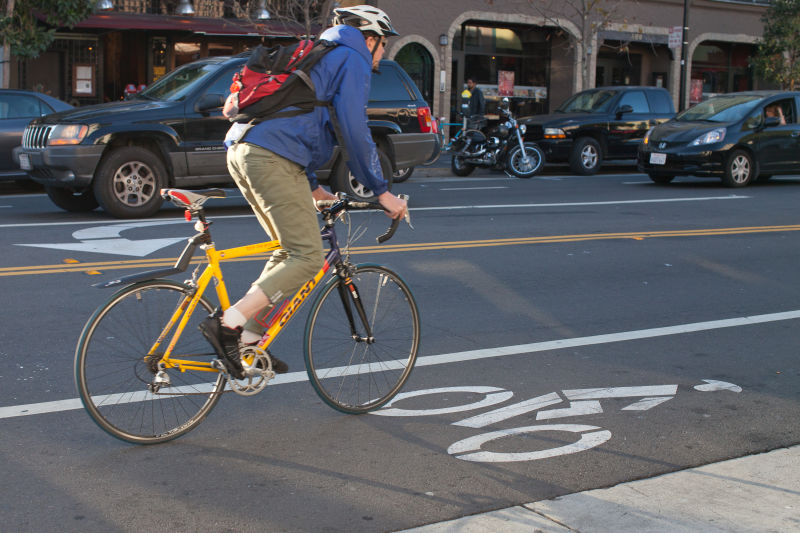San Francisco Mayor Ed Lee has made good on his threat to veto legislation that would have deprioritized ticketing cyclists who safely roll through stop signs.
"This ordinance does not promote balanced public safety for all the diverse users of our streets, rather, it trades safety for convenience," the mayor wrote in a veto letter yesterday to the Board of Supervisors. The board passed the policy, which would have made cyclists yielding at stop signs a low traffic enforcement priority, in a 6-5 vote last month. That wasn't enough to override Lee's expected veto.
Supervisor John Avalos, author of "San Francisco's Right-of-Way Policy," and bike advocates had argued that the San Francisco Police Department should use its scarce traffic enforcement resources to target dangerous drivers, who are responsible for causing the majority of deaths and injuries on the streets.
The legislation was born out of a continuing crackdown on bicyclists who roll through stop signs along The Wiggle, one of the city's most popular bike routes, which is flat and zigzags from Market Street to Golden Gate Park.
A bike commuter's public records act request revealed police dedicated 114 enforcement hours to a two-day August crackdown of bicyclists along The Wiggle, but didn't do any enforcement around the city's most dangerous intersection for bicyclists, Market and Octavia streets.

